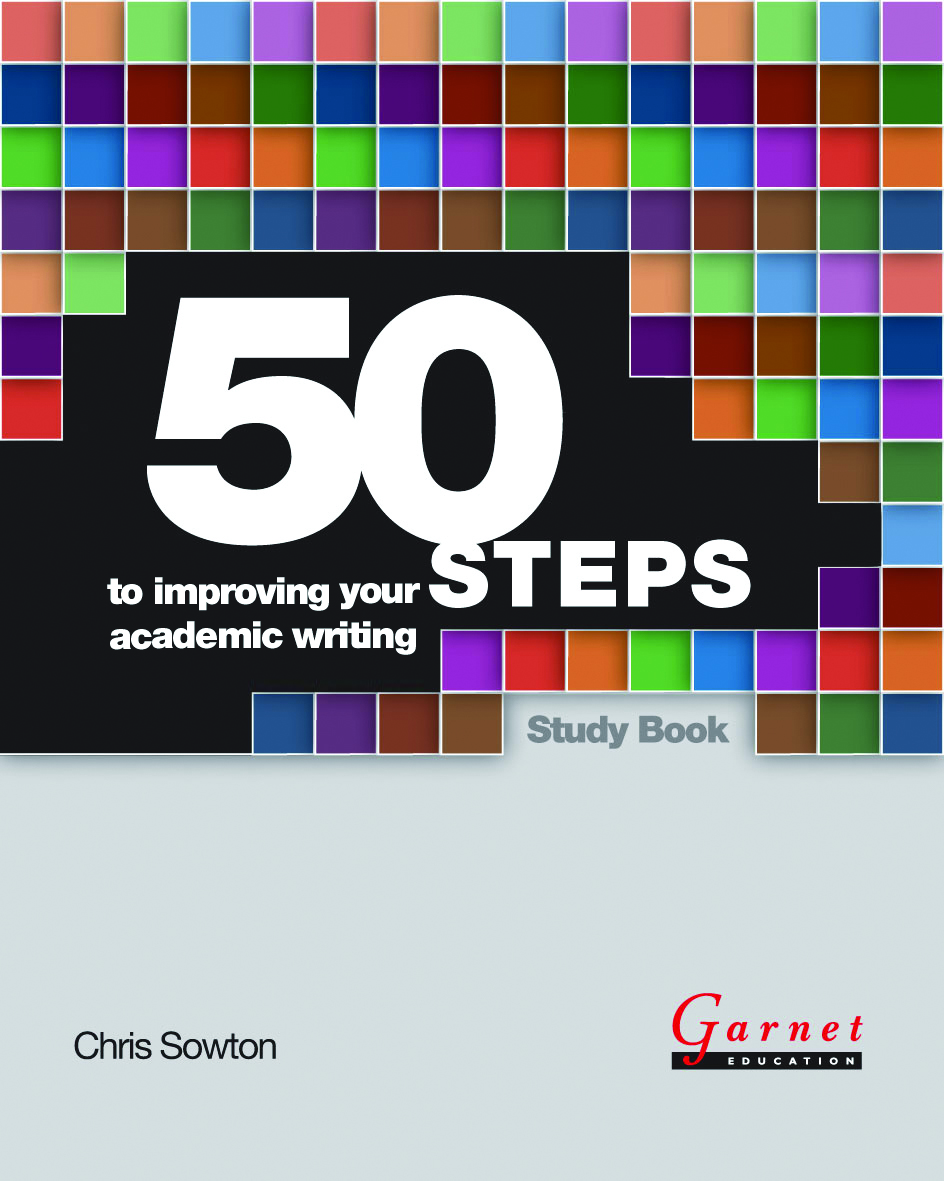About the book
50 Steps to Improving Your Academic Writing
50 Steps to Improving Your Academic Writing addresses the challenges facing every student beginning a program of academic study. This comprehensive guide gives you everything you need to write well-constructed academic essays. It is packed full of information that is critical to attaining better marks, including:
- how to apply critical thinking skills
- how to strengthen your arguments
- how to include paper referencing
- how to avoid plagiarism
50 Steps has been developed to mirror best practice in academic essay writing: researching, planning, writing and then proofreading an essay. Multiple entry points allow you either to work through the book in chronological order or to dip in and out depending on your needs.
The book contains a detailed answer key, a full glossary of terms, plus comprehensive reference material that provides study templates and useful hyperlinks, as well as additional examples and information about academic writing.
Contents
Introduction
A. Understanding Academic Convention
How is writing different from speaking?
How is academic writing different to other forms of writing?
What is plagiarism?
How can I use other people’s ideas in my own writing?
How can I reference properly?
B. Researching your Essay
How do I choose my source material?
How should I use the Internet for research?
What critical thinking skills do I need to develop?
How can I read more efficiently?
How can I take notes effectively?
C. Preparing to Write
How does my mother tongue affect my writing?
How can I manage my time effectively?
How can I understand my title?
How can I brainstorm ideas and develop an outline?
What is a thesis statement and how do I write one?
D. Organizing your Text
What different types of academic writing are there?
How is text organized in academic writing?
What are the characteristics of a good paragraph?
What should be included in my introduction?
What should be included in my conclusion?
E. Making your Writing more ‘Academic’
How can I make my essays more ‘formal’?
Should I use ‘I’ in my writing?
When should I use cautious or tentative language?
How can I make my writing more complex?
How can I strengthen my argument?
F. Developing your Writing Style
How can I write a good sentence?
How can I make my writing more emphatic?
How can I make my writing more coherent?
How can I make my writing more cohesive?
What kind of linking devices can I use in my academic writing?
G. Using Functional Language in your Writing
What is the best way of reporting others’ words?
How can I show cause and effect?
How should I define unfamiliar words and phrases?
How can I compare and contrast different ideas?
What language should I use to interpret tables and graphs?
H. Enriching your Vocabulary
How can I stop repeating the same language?
How can I stop using vague and unnecessary words?
What are ‘collocations’ and how can I use them?
What phrases are commonly used in academic writing?
How can I use prepositions effectively?
I. Improving your Grammar
What tenses should I use in academic writing?
How can I use modal verbs correctly?
How can I punctuate correctly?
How can I use articles?
How can I use adverbs effectively and accurately?
J. Finalising your Writing
Why is proofreading important?
What proofreading strategies can improve my final draft?
What language/grammar mistakes are particularly common?
How do I write a good abstract?
What final checks do I need to make?
Answers
Glossary
Author details
Chris Sowton is an English Language professional with more than 15 years’ experience in the field. He is the author of several EAP books, including 50 Steps to Improving your Academic Writing and the forthcoming 50 Steps to Improving your Grammar. He has taught EAP at King’s College London (University of London) and the University of Cambridge, from foundation through to PhD level. He has also taught ESOL and general EFL to a wide range of students. Over the past decade, he has developed and run a large number of teacher training courses in Nepal with the educational charity Global Action Nepal (which he co-founded) and the British Council. He is currently implementing a teacher training programme and a pioneering English language website, www.onlineenglish.training. His qualifications include a DELTA (from University College London) and an MA (from the University of East Anglia).
Reviews
“…an extremely informative book …a sound investment for any student who wants to improve their academic writing in English.”
- EAP Foundation.com, April 2014
"The author has attempted to put everything about writing academically into one, comprehensive volume and has done a sterling job."
- Peter Fullagar for English Teaching Professional, Issue 88, September 2013
"Overall, I think this is a fantastic book and I recommend it to everyone who teaches IELTS, academic English or essay writing."
- Sandee Thompson for IATEFL Voices, Issue 238, May-June 2014



